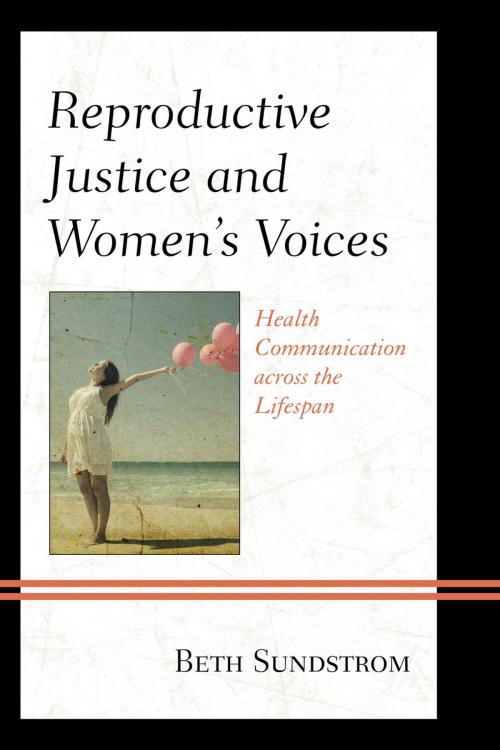Reproductive Justice and Women’s Voices
Health Communication across the Lifespan
Nonfiction, Family & Relationships, Family Relationships, Motherhood, Social & Cultural Studies, Social Science, Gender Studies, Women&, Parenting| Author: | Beth L. Sundstrom | ISBN: | 9781498503143 |
| Publisher: | Lexington Books | Publication: | October 8, 2015 |
| Imprint: | Lexington Books | Language: | English |
| Author: | Beth L. Sundstrom |
| ISBN: | 9781498503143 |
| Publisher: | Lexington Books |
| Publication: | October 8, 2015 |
| Imprint: | Lexington Books |
| Language: | English |
Reproductive rights are human rights. Reproductive Justice and Women's Voices: Health Communication across the Lifespan offers an in-depth analysis of women’s reproductive health in a transformative, sociopolitical moment that is redefining women’s access to health care; reducing disparities in maternal and child health is a critical public health goal for the United States. Sundstrom contributes to patient-centered public health by analyzing women’s reproductive health across the lifespan. Four critical body episodes: contraceptive use dynamics, pregnancy, childbirth, and the post-partum period explicate women’s understandings of control and embodiment in the context of technology. Women’s meaning making of each body episode is interrogated in three areas: (1) the physiological experience of reproductive health, (2) perceptions of medicine and the biomedical model, and (3) opinions of mediated messages about reproduction, including new media. Through stories and silence, the women interviewed in this book demand accurate information, including the risks and benefits of health care, and access to reproductive services and technologies. The analysis disrupts the nature/technology dualism and reconceptualizes health outside of the normative processes of menstruation, pregnancy, and childbirth. By talking with women, this study privileges women’s decision-making about reproductive health and offers insight for how women’s partners, families, and health care providers can support them in this process.
Reproductive rights are human rights. Reproductive Justice and Women's Voices: Health Communication across the Lifespan offers an in-depth analysis of women’s reproductive health in a transformative, sociopolitical moment that is redefining women’s access to health care; reducing disparities in maternal and child health is a critical public health goal for the United States. Sundstrom contributes to patient-centered public health by analyzing women’s reproductive health across the lifespan. Four critical body episodes: contraceptive use dynamics, pregnancy, childbirth, and the post-partum period explicate women’s understandings of control and embodiment in the context of technology. Women’s meaning making of each body episode is interrogated in three areas: (1) the physiological experience of reproductive health, (2) perceptions of medicine and the biomedical model, and (3) opinions of mediated messages about reproduction, including new media. Through stories and silence, the women interviewed in this book demand accurate information, including the risks and benefits of health care, and access to reproductive services and technologies. The analysis disrupts the nature/technology dualism and reconceptualizes health outside of the normative processes of menstruation, pregnancy, and childbirth. By talking with women, this study privileges women’s decision-making about reproductive health and offers insight for how women’s partners, families, and health care providers can support them in this process.















